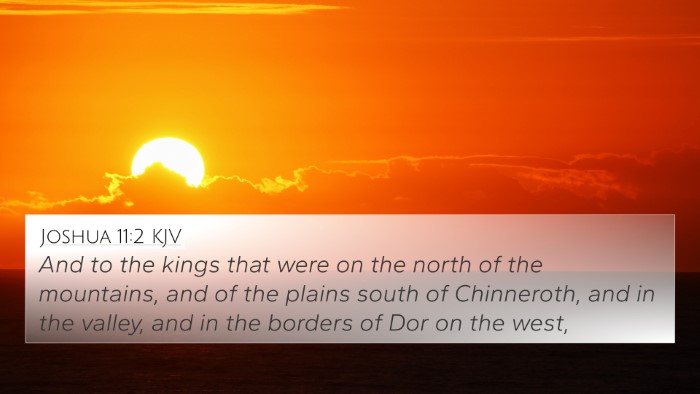Understanding 1 Kings 15:20
1 Kings 15:20 states: "So Ben-hadad hearkened unto king Asa, and sent the captains of the host which he had against the cities of Israel, and smote Ijon, and Dan, and Abelbethmaachah, and all Cinneroth, with all the land of Naphtali." This passage encapsulates a pivotal moment in the narrative of the kings of Israel and Judah, showcasing the intricate political and military relationships that define this period.
Meaning and Insights
The meaning of 1 Kings 15:20 can be understood through various public domain commentaries which shed light on its historical and theological significance.
- Matthew Henry: Henry emphasizes the providence of God in the success of Asa. He notes that Asa’s reliance on Ben-hadad, the king of Syria, demonstrated a lack of faith in God. However, God still used this alliance to achieve His purposes.
- Albert Barnes: Barnes provides insight into the geopolitical context, detailing how Asa’s call for Ben-hadad to attack Israel reflects a strategic maneuver to divert attention from Judah. This sheds light on Asa’s political acumen and the interconnectedness of Israelite and Aramean kingdoms.
- Adam Clarke: Clarke points out the significance of the cities mentioned—especially Ijon and Dan—as they indicate land that was contested between the kingdoms. He explores the implications of military conquest and the divine orchestration behind these territorial conflicts.
Cross-References in Scripture
This verse is richly connected to other biblical texts that enhance its understanding through cross-references:
- 1 Kings 12:25-33: Highlights Jeroboam's reign and the division of Israel, setting the backdrop for the conflict between Asa and Israel.
- 2 Chronicles 14:9-12: Discusses Asa's military engagements and reinforces the theme of God’s intervention in battles.
- Amos 1:9-10: References judgment against Damascus, offering insight into God’s dealings with those aligned against Israel.
- 2 Kings 6:8-23: Illustrates the complexity of alliances and enemies, focusing on Syria's interactions with Israel.
- Isaiah 7:1-9: Discusses the alliance of Israel with Syria and foreshadows later conflicts.
- James 1:5: Emphasizes seeking wisdom from God, which contrasts Asa’s reliance on an external king for victory.
- Psalms 37:23-24: Suggests the Lord’s guiding hand in the steps of the righteous king, resonating with Asa’s story.
- Proverbs 21:30: Reminds readers that no wisdom or understanding can prevail against the LORD, challenging the reliance on alliances.
Thematic Connections
The verse offers rich thematic connections pertinent to biblical studies, such as:
- Faith vs. Alliance: Asa’s decision to seek help from Ben-hadad can be contrasted with moments in scripture where reliance on God alone leads to triumph.
- The Role of Prophets: The absence of prophetic guidance in this passage reflects on the overall spiritual condition of Israel and Judah.
- Political Intrigue: The alliances formed during this time elucidate the complicated nature of leadership and governance in biblical history.
Tools for Cross-Referencing
Studying texts like 1 Kings 15:20 benefits greatly from the tools available for Bible cross-referencing. These tools allow for deeper insights into scripture:
- Bible Concordance: A useful resource for finding related verses and themes associated with specific terms and concepts.
- Bible Cross-Reference Guide: Guides that help identify connections between scripture verses across both Testaments.
- Study Bibles: Many offer cross-references alongside the text, aiding the reader in comparative Bible verse analysis.
Conclusion
In conclusion, 1 Kings 15:20 serves as a pivotal point in understanding the narrative of Israel's kings, emphasizing the complexities of faith, politics, and divine sovereignty. By leveraging cross-references, readers can gain a broader perspective on the intricate web of relationships and the overarching spiritual truths found throughout the Bible. As you explore these connections, consider how the themes of reliance and faith resonate with your own understanding of the scriptures.









